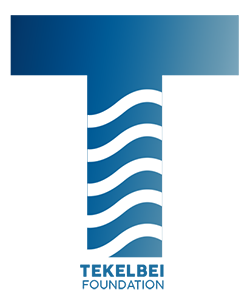Providing clean and safe drinking water is a goal that is close to our hearts. We are committed to ensuring that needy Kenyan households in Bomet County have access to water tanks to harvest rainwater.
Tekelbei Foundation has a deep commitment to the provision of clean and safe drinking water. Our primary objective is to ensure that marginalized and vulnerable households have access to water tanks for rainwater harvesting. In Bomet County, Kenya, we have supplied over 1,000 tanks to more than 300 families, enabling them to conveniently obtain safe clean drinking water right at their doorstep to meet their daily requirements.
At least 40% of Kenyan households cannot access safe clean water. This is a sad reality. However, we believe that clean water provision is a collective responsibility. As 2030 fast approaches, our leadership, team, and communities are working consistently to ensure we achieve the dream of improving the lives of our children, youth, women, and families.
In rural areas of Kenya, communities traditionally depend on water sources such as rainfall, rivers, wells, and ponds to fulfill their water requirements.

















According to the UN, women and children spend on average six to eight hours each day walking to fetch water. The average distance that women and children in developing communities walk to access water is 6 kilometers. The time children spend collecting water keeps them from going to school and getting an education.
Moreover, women experience chronic fatigue and dehydration while walking for water. Pregnant women can suffer spontaneous miscarriages because of the physical demand of collecting water. The time spent and the physical toll it takes on women to collect water keeps them from engaging in gainful economic activities to provide for their families. With close and easy access to safe drinking water, women can provide a second income for their families, and contribute to economic development in their community.
Climate change, on the other hand, has worsened access to safe clean drinking water through reduction of river flows and yields at springs and shallow wells. Rainfall, too, has become unpredictable.

 Tekelbei Foundation is a non-profit that’s duly registered in Kenya and whose aim is ensuring everyone has access to water by 2030. Our mission is to promote socio-economic prosperity for marginalized and vulnerable members of the community by providing access to safe, clean drinking water.
Tekelbei Foundation is a non-profit that’s duly registered in Kenya and whose aim is ensuring everyone has access to water by 2030. Our mission is to promote socio-economic prosperity for marginalized and vulnerable members of the community by providing access to safe, clean drinking water.